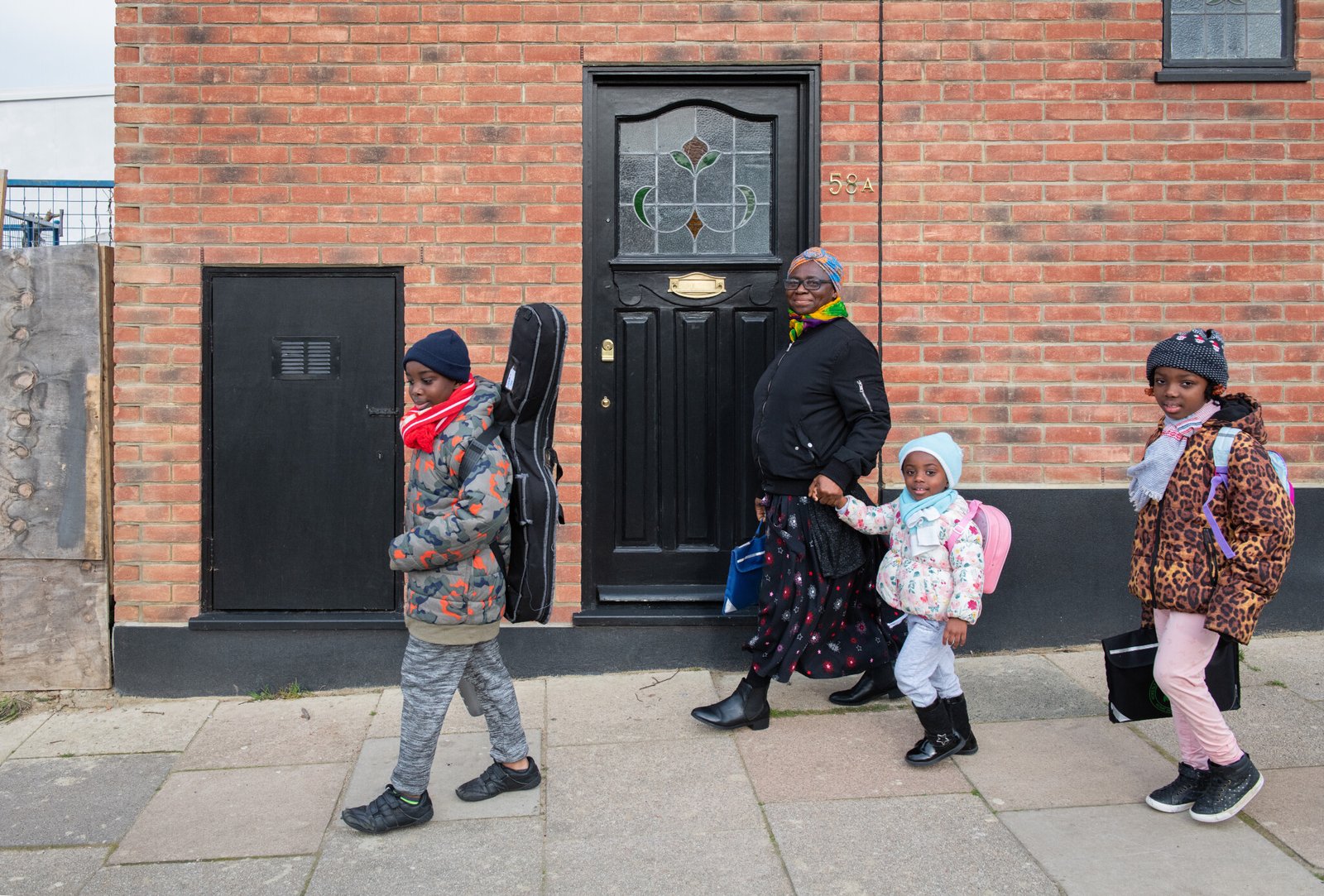Bromley has the most car-free school journeys in the capital, according to figures released by Transport for London (TfL).
The ranking has been released by TfL in a bid to encourage more schools to join its Travel for Life programme and promote sustainable travel to help improve air quality, health and safety.
The scheme is run by the London Transport Museum in partnership with London’s borough officers.
By completing activities that promote walking and cycling to school, primary and secondary schools can become Bronze, Silver or Gold accredited.
To achieve Gold accreditation, a school must have reduced car use by six per cent or achieved 90 per cent of the school run being made using sustainable transport.
Bromley has the largest proportion of Gold schools, at 63 per cent, followed by Islington at 49 per cent and Havering at 45 per cent.
Walking and cycling to school has been found to improve children’s mood and behaviour (Picture: Eleanor Bentall)
Across the capital, the number of schools awarded Gold in 2024 was 735, a 10 per cent increase compared to 2023.
Meanwhile Waltham Forest has the largest overall number of schools participating in the Travel for Life programme, with 81 per cent of its schools involved.
Bromley and Islington also have large numbers of schools participating, with 74 and 71 per cent of schools respectively.
TfL’s Travel for Life programme now has more than 100,000 pupils and 91 per cent of London schools taking part.
Lilli Matson, TfL’s chief health, safety and environment officer, said: “Clean air is fundamental for a London where every young person can thrive.
“Walking and cycling to school cuts out the harmful emissions from cars, and also gets children active, benefitting them both inside and outside the classroom.
“It’s so encouraging to see growing numbers of schools achieving Gold accreditation and we need to keep that momentum going.”
In 2023, the number of children killed or seriously injured on London’s roads reduced by 40 per cent (Picture: Eleanor Bentall)
According to the national charity, Living Streets, walking and cycling to school has a number of health benefits for children, including improvements in mood and behaviour.
Fewer parents driving children to school also improves road safety, as TfL works to eliminate all deaths and serious injuries from London’s transport network as part of its Vision Zero programme.
Following several measures taken by TfL, there has been sustained improvement in safety for under-16s on London’s roads.
In 2023, the number of children killed or seriously injured on London’s roads reduced by 40 per cent against TfL’s 2010-14 baseline.
With the Government’s target to get 55 per cent of primary school aged children walking to school by 2025, TfL is calling on London schools not currently participating in Travel for Life to sign up.
London’s Walking and Cycling Commissioner, Will Norman, said: “The New Year is the perfect time to introduce children to sustainable travel so I would encourage as many schools as possible to join this fantastic scheme which improves the environment and supports fit and healthy lifestyles.”
Pictured top: TfL is calling on more schools to join its Travel for Life programme and promote sustainable travel (Picture: Eleanor Bentall)
